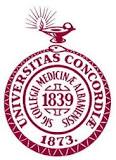Use of Ceftaroline in Hospitalized Patients With Community Acquired Pneumonia
| Status: | Completed |
|---|---|
| Conditions: | Pneumonia |
| Therapuetic Areas: | Pulmonary / Respiratory Diseases |
| Healthy: | No |
| Age Range: | 18 - Any |
| Updated: | 5/3/2014 |
| Start Date: | May 2012 |
| End Date: | May 2014 |
| Contact: | Wayne Triner, DO, MPH |
| Email: | TrinerW@mail.amc.edu |
| Phone: | 518-262-3773 |
Ceftaroline Fosamil Versus Standard of Care for Community Acquired Bacterial Pneumonia (CABP): Clinical Outcomes Among Hospitalized Adults at a Single United States Hospital
Community-acquired bacterial pneumonia, which is often called CAP, is a bacterial infection
in the lungs and is treated with antibiotics. Sometimes people need to be in the hospital
to be treated for CAP. Usually, hospitalized persons with CAP are given two antibiotics
together. These antibiotics usually include a cephalosporin and a macrolide. The most
commonly used cephalosporin at Albany Medical Center Hospital is ceftriaxone. The most
commonly used macrolides at Albany Medical Center Hospital are azithromycin and doxycycline.
This research is being done to find out how well a new cephalosporin antibiotic, called
ceftaroline, works in combination with a macrolide for the treatment of CAP. Ceftaroline is
similar to ceftriaxone. Ceftaroline was recently approved by the FDA to treat pneumonia in
hospitalized patients based on two research studies. In one study, ceftaroline was better
than ceftriaxone. In the second study, ceftaroline was just as good as ceftriaxone.
Ceftaroline was very well tolerated in both clinical studies and it was found to be as safe
as ceftriaxone.
in the lungs and is treated with antibiotics. Sometimes people need to be in the hospital
to be treated for CAP. Usually, hospitalized persons with CAP are given two antibiotics
together. These antibiotics usually include a cephalosporin and a macrolide. The most
commonly used cephalosporin at Albany Medical Center Hospital is ceftriaxone. The most
commonly used macrolides at Albany Medical Center Hospital are azithromycin and doxycycline.
This research is being done to find out how well a new cephalosporin antibiotic, called
ceftaroline, works in combination with a macrolide for the treatment of CAP. Ceftaroline is
similar to ceftriaxone. Ceftaroline was recently approved by the FDA to treat pneumonia in
hospitalized patients based on two research studies. In one study, ceftaroline was better
than ceftriaxone. In the second study, ceftaroline was just as good as ceftriaxone.
Ceftaroline was very well tolerated in both clinical studies and it was found to be as safe
as ceftriaxone.
Inclusion Criteria:
- age 18 years or older
- met ATS/ISDA criteria rule of CABP
- CABP requiring hospitalization and treatment with a IV antimicrobial
- anticipated hospitalization for > 48 hours
- received ceftaroline in combination with a macrolide (clarithromycin, or
azithromycin) for > 48 hours within the first 24 hours after presentation to the
hospital and must have remained on therapy for at least 48 hours after admission
- Pneumonia Patient Outcomes Research Team (PORT)risk class III or IV
Exclusion Criteria:
- CABP PORT Risk class I, II, III
- CABP requiring admission to an ICU
- CABP suitable for outpatient therapy with an oral microbial agent
- confirmed or suspected respiratory tract infection attributed to a source other than
CABP pathogens
- noninfectious case of pulmonary infiltrates or pleural empyema
- infection with a pathogen know to be resistant to ceftaroline or epidemiological/
clinical context suggesting a high likelihood of a resistant pathogen
- previous therapy with another intravenous beta-lactam for CABP for between 24 and 96
hours prior to randomization
- receipt of chronic concomitant systemic steroids > 40 mg of prednisone equivalent
- significant hepatic disease
- hematologic disease
- Immunological disease
- history of a hypersensitivity reaction to beta-lactams
- pregnant or nursing females
We found this trial at
1
site
Albany Medical College Albany Medical Center is northeastern New York's only academic health sciences center...
Click here to add this to my saved trials
